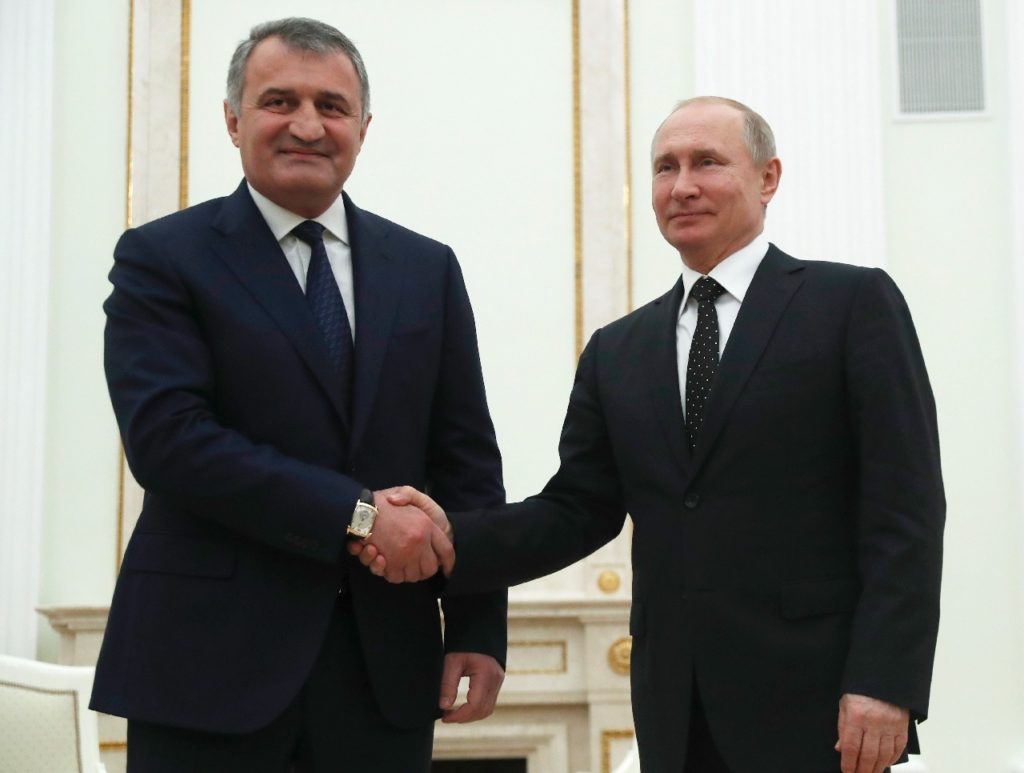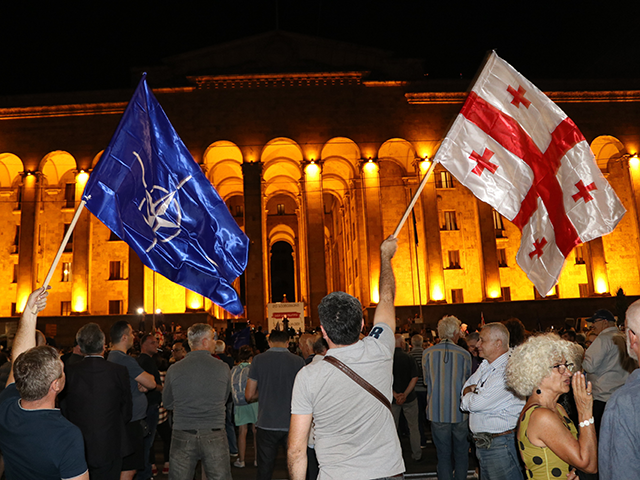The president of Georgia’s South Ossetia region, a Russian-backed self-proclaimed separatist state, suspended on Monday a planned referendum that would have seen South Ossetians vote on formally joining the Russian Federation, Radio Free Europe/Radio Liberty (RFE/RL) reported Tuesday.
“Until the completion of consultations, suspend the Decree of the President of the Republic of South Ossetia dated May 13, 2022 ‘On calling a referendum of the Republic of South Ossetia,'” Alan Gagloyev said in a decree issued May 30, as quoted by Reuters.
Gagloyev was elected “president” of South Ossetia on May 24. He succeeded Anatoly Bibilov, who assumed the title in April 2017. Bibilov proposed the now-scrapped referendum on May 13, stating it should be held on July 17.
“Anatoly Bibilov … is considered by many to have called for the controversial vote to secure his reelection,” the German broadcaster Deutsche Welle (DW) observed May 31.
“However, Bibilov lost a presidential election in early May to his rival Alan Gagloev, who has called the planned plebiscite premature,” DW noted.
“Despite criticizing the referendum, Gagloyevhas voiced his support for South Ossetia’s eventual accession to Russia,” the broadcaster recalled.

Anatoly Bibilov (L), the leader of Georgia’s breakaway region of South Ossetia, seen here at a meeting with Russian President Vladimir Putin (R) on March 6, 2019. (AFP)
Gagloyev implied during a recent interview with Russia’s state-run TASS news agency that he was merely waiting for Moscow’s approval of a South Ossetia referendum on joining Russia before he chooses to hold the vote on an undisclosed future date.
“Alan Gagloyev said earlier in an interview with TASS that a referendum on his country’s accession to Russia should be organized when Moscow sends a signal it is time for that,” the news agency reported on May 14.
TASS on May 14 quoted Gagloyev as saying he planned to hold a referendum on South Ossetia’s union with the Russian Federation and would do so after “holding consultations and implementing agreements” with Moscow. This rhetoric was echoed by Gagloyev’s decree on May 30 suspending the referendum planned by Bibilov. The newly elected South Ossetia president said he paused the planned vote “until the completion of consultations [with Russia].”
Gagloyev seemed to provide a key reason for his decision to wait for the Kremlin’s go-ahead before organizing a referendum on South Ossetia’s union with Russia during his May 14 interview with TASS.
The regional leader stated:
As a reliable strategic partner of the Russian Federation and an adequate side of contractual relations the Republic of South Ossetia is obliged to fulfill Article 1 of Treaty with the Russian Federation on alliance and integration [sic]. It says that “the contracting parties pursue coordinated foreign policy that suggests mutual consideration of interests of contracting parties in various areas of cooperation, inform each other on related actions [sic].”
Russia engaged in a five-day war with Georgia in August 2008 to gain control over two Russian-backed breakaway regions in the country’s north, South Ossetia and Abkhazia. Moscow sent troops into South Ossetia and Abkhazia before expanding the operation further into Georgia, including near the national capital of Tbilisi. This plan of action seems to have been echoed in Russia’s latest war with Ukraine, which began on February 24. Moscow first sent military forces into two Russian-backed separatist states in eastern Ukraine (the Donetsk and Luhansk “People’s Republics,” collectively known as the Donbas) before moving troops across greater Ukraine, including near its national capital of Kyiv.
Russia previously seized control of Ukraine’s Crimean Peninsula in February 2014. Moscow organized a referendum in Crimea in March 2014 in which 95.5 percent of voters elected to join the Russian Federation. Though Western observers questioned the referendum’s legitimacy, the move proved successful as Crimea continues to be administered by the Kremlin today. Moscow reportedly aims to hold similar referendums in Donetsk and Luhansk to secure its footing in the two breakaway states.

COMMENTS
Please let us know if you're having issues with commenting.